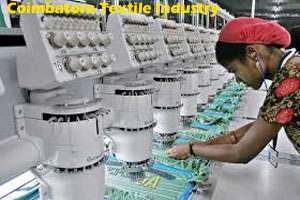

Coimbatore, the textile hub of TamilNadu faces difficulty in finding skilled employees despite of the fact that there are more than 9 institutions in the state that offer technical training in textile engineering. Textile industry is facing acute shortage of skilled employees.
The IT boom and construction boom in recent years are the major reasons for this scarcity. During the first year of employment, the salaries these industries pay is double that of the textile industry salary. Another major reason is the import of machinery which is a huge capital. Hence focus is on quantity and not quality.
The chairman of South Indian Mills Association (SIMA), T.Rajkumar said that even though the city has an install capacity of 7 million spindles in comparison to Maharashtra’s 4.5 million and Gujarat’s 3 million, the textile profession is losing its popularity. In the last ten years, while the off take for textile education has come down drastically, the industry has grown significantly during the same period. Thus, there is severe shortage of skilled labour. Dr. K Selvaraju, Secretary General, SIMA said that out of the 900 mills in the city, more than 50 have closed down in the last 5 years, including Lakshmi mills, Ramakrishna mills and SRP Mills.
Dr. G Thilagavathy, HoD, Textile Technology at PSG College of Technology comments that 50 % of people in the textile engineering field end up in software firms. There is a mismatch between what people expect in an educational institution and what they get in the industry.
Dr. V.K Kothari, professor, Department of Textile Technology, IIT, Delhi said that people expect better pay but the compensation is poor and work environment is equally bad. The industry needs to provide a good career path and growth opportunities to attract people. Placements are a major cause of this trend. The textile industry requires specialized engineers.
Students also add up in this discussion. Naveen Kumar P, final year student, B.Tech Textile Engineering said that even if I am interested in one particular subject and want to research on it, the next semester begins and I am asked to learn other subjects. Praveen T.N, Final year Textile Engineering student also commented that only if the industry gets quality focused, they will need our skills. If we are asked to take up managerial posts we definitely wouldn’t opt for it.
In the educational institutions, R&D is not up to the mark. Dr. Mohit A Raina, Head of Division Production technologies, AACHEN University, Germany said that in Germany, students and faculty work together to find solutions for industry-related problems. In other countries, students search for answers in the industry whereas here we search for answers in books.
While SITRA and SIMA are helping educational institutions in the field of research and development, government policies are blamed for lack of research and development in the field. From 2003 onwards, the government had stopped funding research activities. This is the reason why they are unable to pay enough in comparison to other major industries and making R&D weak.
Yiqi Yang has developed a groundbreaking fiber-to-fiber recycling technology that removes dyes, separates blended fibers, and recovers high-quality materials.
DS Smith has unveiled a plastic-free packaging solution for BMW's car wheel carriers, replacing traditional materials with recyclable corrugated cardboard.
A doctoral thesis from the University of Borås, Sweden, presents a novel method for healing large bone defects using bioplastic…
Ambercycle and Highsun Holding Group have signed a strategic cooperation agreement aimed at advancing textile-to-textile (T2T) closed-loop recycling systems.
PAIGE has partnered with the Cotton Lives On programme to launch a recycling campaign, encouraging customers to bring in old…
Toray Industries Inc. from Japan, has partnered with Head Sports GmbH to create the Boom Raw tennis racquet, a product…